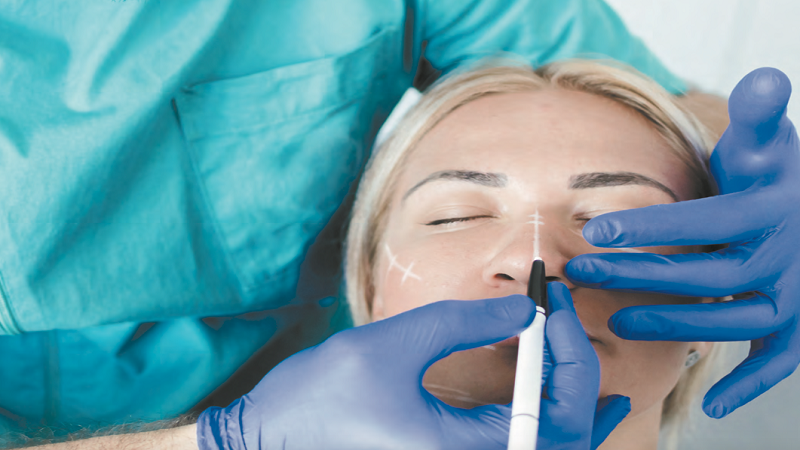Nose surgery of different races
The meaning of nose surgery of different races is to perform nose surgery on non-Indian and European races. Among surgeons, the nasal proportions of white Indo-European women were considered the ideal nasal proportions from the beginning, and due to the highly discriminatory orientation of the media, most non-Indo-Europeans were not eligible for rhinoplasty. They followed western standards. But now, with the increase in the rate of rhinoplasty, beauty standards have changed, and with an increasing trend, they are defined based on more multicultural standards..
Currently, it is common practice for a person to improve their appearance but still remain similar to their original race. As a result, a system that only two standards of beauty ("Different races" and "Indo-European") It is no longer relevant, and in my opinion, the phrase "nose surgery of different races" is also an outdated term.
Stay with us with informative content دکتر مجید راستی Of nose surgery :
- The effect of rhinoplasty on the shape of the lips
- Restorative nose surgery
- Eye LASIK and Rhinoplasty
- Of nose surgery دکتر مجید راستی
- The effect of rhinoplasty on the cheek
- Stitches remain in the nose
- فوق تخصص جراحی پلاستیک اصفهان دکتر مجید راستی
- The effect of sunlight on the operated nose
- Causes and symptoms of perforation of the nasal septum
- Hair coloring after nose surgery
The difference in the appearance of the nose in different races
There are stark differences among different racial groups. Significant differences can be found even among people of the same ethnicity and race. With this in mind, whatever your racial background, we will do our best to enhance your appearance while maintaining your original face that represents your race.. According to Dr. Majid Rasti, the correct classification of "non-Indo-European nose surgery" is given below for the information of surgeons and patients.. Of course, it is clear that this list is not complete enough to include all races:
- Indian and European: Anglo-Saxon, German, Latin (Greek, Roman, French)Slavic, Mediterranean
- African-American
- Asian: North American, Korean, Chinese, Japanese, Filipino
- Middle East: Iranian, Arab, Indian, Pakistani
- spanish: Castilian, Mexican-American, Mestizo (Spanish and Indian hybrid)
How do we maintain a patient's racial identity?
Dr. Majid Rasti, as a nose surgeon, encourages his plastic surgery residents to always try to create a balanced beauty in the faces of patients and preserve their racial identity.. The surgeon should be familiar with the differences in the anatomy of the face and nose of patients of different races and prepare a list of the patients' needs..
In some cultures, the desired beauty of each patient is different depending on the country from which they immigrated. However, we do not want to operate on a patient according to a general pattern. To achieve harmony in the face, the beauty of the nose must be in harmony with the racial and natural characteristics of the patient's face. به نظر Of nose surgery تصمیم افراد غیر هند و اروپائی برای تغییر شکل بینی تحت تأثیر چندین گرایش و رویه مرسوم قرار گرفته است، که عبارتند از:
- Asians generally tend to have noses similar to Westerners.
- Middle Easterners are no longer worried about the size of their nose profile.
- Spaniel patients generally want slimmer, thinner noses, which don't necessarily need to be larger.
- Non-Indo-Europeans who go for rhinoplasty often think after their first rhinoplasty that their nose is too cut. (A nose with a slope like a ski slope, which is called a saddle nose deformity) And excessive narrowing of the tip of their nose cartilage no longer shows their race and ethnicity on their faces.
As a result, when performing male and female rhinoplasty for a non-Indian-European patient, creating a nose that fits the racial characteristics of that person is the highest priority.. These issues must be fully considered during the consultation.


